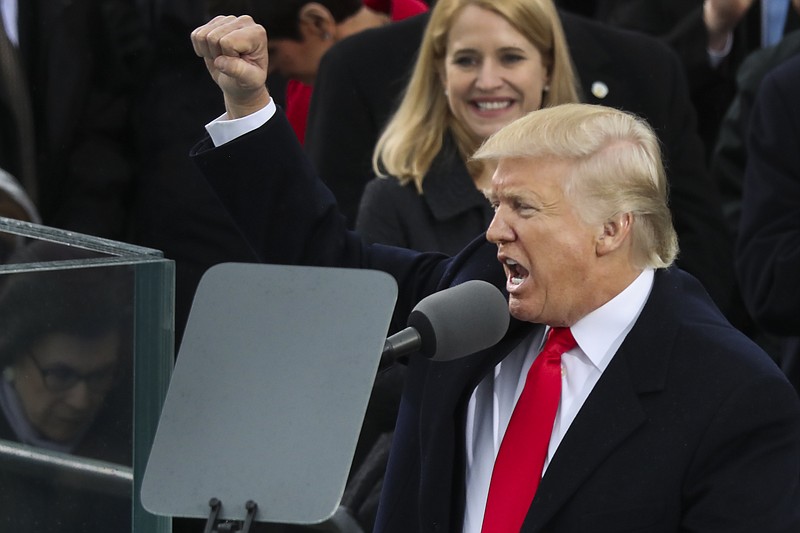When Donald Trump was elected president, it felt to me like the most reckless thing our country had done in my lifetime. But like many Americans, I hoped for the best: He'll grow into the job. He'll surround himself with good people. The country could use a jolt of fresh thinking. He'll back off some of his most extreme views.
But now that Trump is about to put his hand on the Bible and be sworn in, I've never been more worried for my country. It's for many reasons, but most of all because of the impulsive, petty and juvenile tweeting the president-elect has engaged in during his transition.
It suggests an immaturity, a lack of respect for the office he's about to hold, a person easily distracted by shiny objects, and a lack of basic decency that could roil his government and divide the country.
As a leader, you only have one chance to make a second impression. And it is troubling how badly Trump wasted his. A recent Gallup poll found that only 44 percent of Americans approve of Trump's handling of his transition - compared with 83 percent for President Barack Obama's and 61 percent for George W. Bush's.
Trump is hardly the first person elected president to have his legitimacy attacked. Indeed, he led the onslaught on Obama's legitimacy. But more than any president since Richard Nixon, Trump has shown himself incapable of turning the other cheek and converting doubters into allies. In an age that demands giant leadership, he's behaved utterly small.
What if, after Meryl Streep used her acceptance speech at the Golden Globes to decry Trump's cruel impersonation of a handicapped reporter, Trump - instead of ridiculously calling her "one of the most overrated actresses in Hollywood" - had tweeted: "Meryl Streep, greatest actress ever, ever, ever. Stuff happens in campaigns, Meryl. Even I have regrets. But watch, I'll make you proud of my presidency!!!!"
What if, after John Lewis, the congressman and civil rights hero, questioned the legitimacy of Trump's election, Trump hadn't sneered that Lewis was "all talk, talk, talk" and "should spend more time on fixing and helping his district, which is in horrible shape." What if Trump instead tweeted: "John Lewis, a great American, let's walk together through your district and develop a plan to improve people's lives there. Obama was all talk. I'm all action. Call me Friday after 1 p.m. 202-456-1414. I'll show you how legit I am."
What if on New Year's Trump - instead of tweeting "Happy New Year to all, including to my many enemies" who "lost so badly they just don't know what to do" - had tweeted: "Happy New Year to every American - especially to Hillary Clinton and her supporters who fought a tough campaign - very tough. Let's together make 2017 amazing (!!!!!!) for every American. Love!"
What if Trump - instead of calling Senate Minority Leader Chuck Schumer "head clown" - had tweeted: "Chuck, you are THE MAN!!! Top Democrat now that Obama's gone!!! You love to deal. Send me your best health care experts and we'll fix this thing together in 24 hours, so every American gets better, cheaper care. We'll both be heroes (well, me just a little bit more). Call me!!!"
That is the sound of magnanimity. It would have generated a flood of good will that would make solving every big problem easier. And it would have cost Trump nothing.
I've noted before that one of my favorite movies is "Invictus," which tells how Nelson Mandela, when he became South Africa's president, built trust with the white community. Shortly after Mandela took power, his sports advisers wanted to change the name and colors of the country's famed rugby team - the almost all-white "Springboks" - to something more reflective of black African identity.
Mandela refused. He told his black aides that the key to making whites feel at home in a black-led South Africa was not uprooting all of their cherished symbols. "We have to surprise them with restraint and generosity," said Mandela.
Most Americans are good-hearted people who are actually starved to feel united again. Many who voted against Trump would have given him a second look had he surprised them with generosity and grace. He did just the opposite. Sad.
